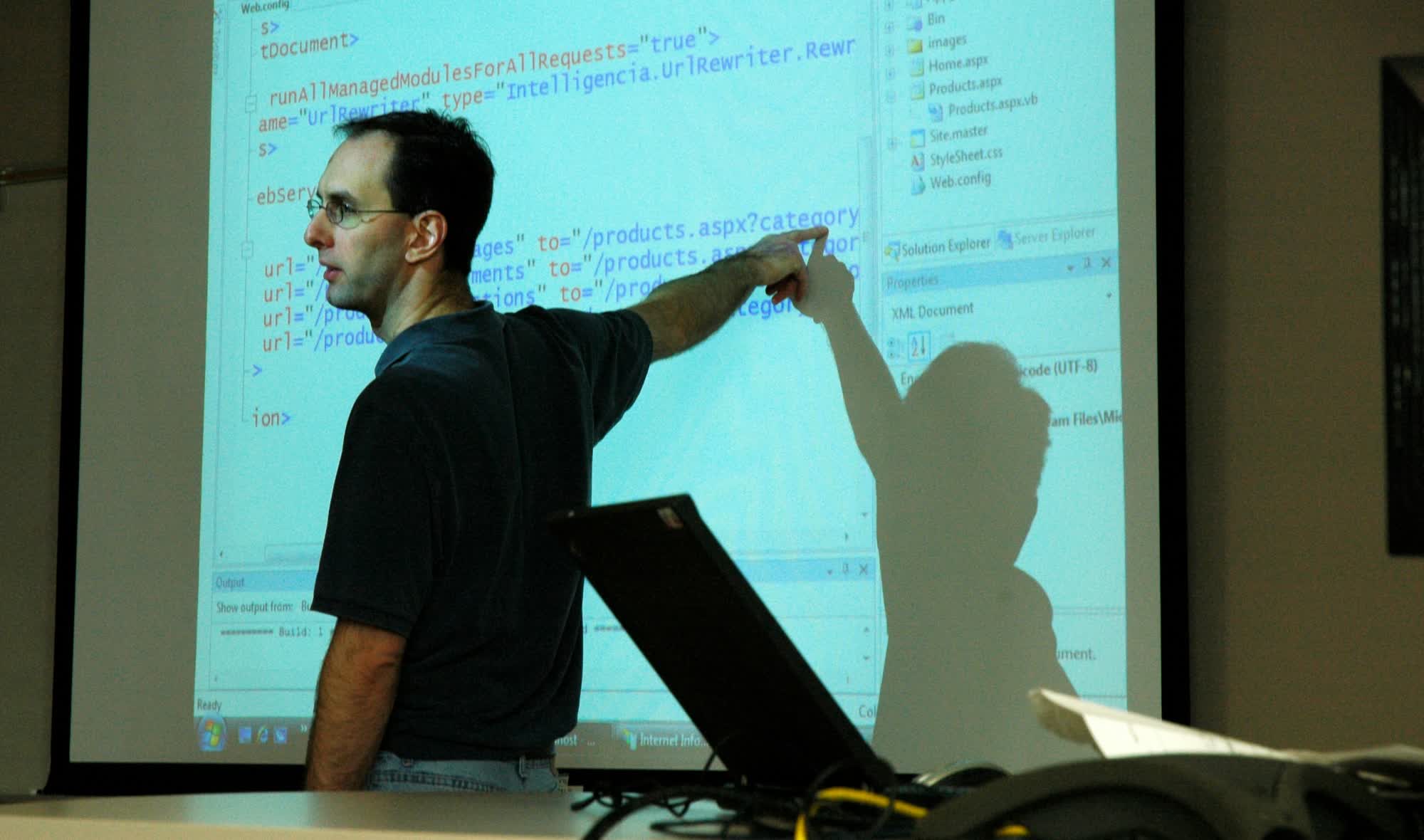The big picture: The rapid rise of generative artificial intelligence is prompting a fundamental rethinking of computer science education in the US. As AI-powered tools become increasingly proficient at writing code and answering complex questions with human-like fluency, educators and students alike are grappling with which skills will matter most in the years ahead.

Generative AI is making its presence felt across academia, but its impact is most pronounced in computer science. The introduction of AI assistants by major tech companies and startups has accelerated this shift, with some industry leaders predicting that AI will soon rival the abilities of mid-level software engineers.
Universities are now reassessing their curricula. Some educators are considering moving away from an emphasis on mastering programming languages, instead exploring hybrid courses that blend computing skills with other disciplines. The goal is to prepare students for a future in which AI is deeply embedded across all professions.
This sense of urgency is heightened by a tightening tech job market. Graduates who once counted on abundant opportunities now face stiffer competition, as companies automate more entry-level coding tasks with AI.
Some experts suggest that computer science may increasingly take on the qualities of a liberal arts degree, placing greater value on critical thinking and communication skills alongside technical expertise. Mary Lou Maher, a computer scientist and director at the Computing Research Association, told The New York Times that the future of computer science education is likely to shift away from coding and instead emphasize computational thinking and AI literacy.

In response, the National Science Foundation has launched an initiative called Level Up AI, led by the Computing Research Association in partnership with New Mexico State University. The 18-month project brings together educators and researchers to define the essentials of AI education and share best practices. "A sense of urgency that we need a lot more computing students – and more people – who know about AI in the work force," is driving the project, Maher said.
Carnegie Mellon University, a longtime leader in computer science, is among the institutions reimagining their approach. This summer, faculty in its computer science department will meet to consider how best to adapt to the new landscape.
AI has "really shaken computer science education," said Thomas Cortina, a professor and associate dean for undergraduate programs. He supports a curriculum that combines foundational computing and AI principles with hands-on experience using new tools. "We think that's where it's going," he added. "But do we need a more profound change in the curriculum?"
At Carnegie Mellon, professors decide individually whether to allow AI in their classes. Last year, the university approved the use of AI tools in introductory courses. Dr. Cortina noted that many students initially saw AI as a "magic bullet" for completing programming assignments, but often "didn't understand half of what the code was." This realization, he said, has led many to refocus on learning to write and debug code themselves. "The students are resetting."
Across the country, students are adapting to these new realities with caution. Many use AI tools to build prototypes, check for errors, or answer technical questions, but worry that overreliance could dull their skills.
The job search has also become more challenging. Connor Drake, a senior at the University of North Carolina at Charlotte, said he felt lucky to get an interview after submitting 30 applications, eventually landing a cybersecurity internship at Duke Energy. "A computer science degree used to be a golden ticket to the promised land of jobs," Drake said. "That's no longer the case."
To stay competitive, Drake has broadened his studies with a minor in political science focused on security and intelligence, and he leads a university cybersecurity club. Like many of his peers, he's adjusting to a tougher job market. According to CompTIA, job listings for workers with two years of experience or less have fallen 65 percent over the past three years, while postings for all experience levels are down 58 percent.
Despite the uncertainty, many experts believe the market for AI-assisted software will continue to grow. Each wave of technological innovation – from personal computers to smartphones – has historically increased demand for software and programmers. This time, AI tools may enable people in many fields to build their own programs using industry-specific data.
"The growth in software engineering jobs may decline, but the total number of people involved in programming will increase," predicted Alex Aiken, a computer science professor at Stanford.
Universities are rethinking computer science curriculum in response to AI tools
